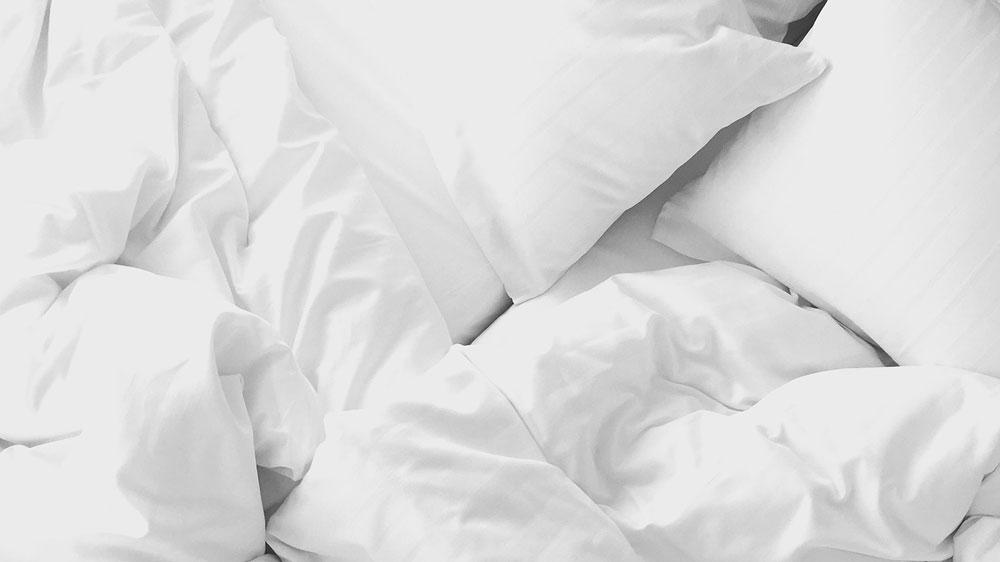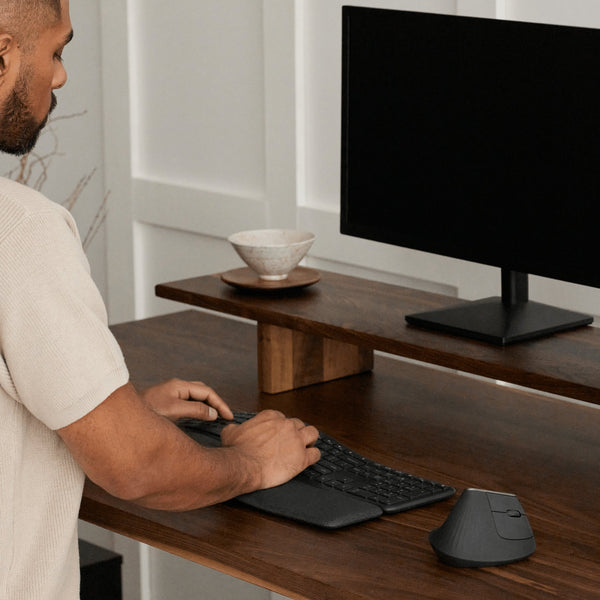Illustration by Kim Salt
In a society where constant activity has become a marker of one’s status and standing, going above and beyond has become the norm while we slowly (and for some- rapidly) reap the repercussions of this taxing reality. The secret to better performance at work and in your day to day activities isn't necessarily in that extra cup of coffee or that intense HIIT workout, the answer may lie in something that is often overlooked and fairly simple, your nighttime routine and sleeping habits. If you are looking to optimize your immune system, reduce inflammation, boost memory, recover from your workouts and boost your metabolism, sleep is key, and proper sleep is everything.
If you feel like your consumption of caffeine is taking a toll on your body or that you aren’t as energized, focused and sharp at work, it might be time to try these 8 sleeping hacks to help your body heal and wake up feeling on top of the world.
1- Turn off your devices
The blue light emitted by devices seriously affects our circadian rhythm (simply put, the biological process which regulates the human sleep- wake cycle) by turning off the production of melatonin and making one feel more awake. Most people spend their entire workday glued in front of a computer only to come home and sit in front of their television or look at their phones. Try putting your phone on airplane mode and leaving it in a designated space at least one hour before bed. Your body will thank you. If for some reason you absolutely need to be on your phone at night, try purchasing blue light blocking glasses.
2- Sleep naked and lower your home’s temperature
The cooler you stay at night the easier it is the achieve deeper, restful states of sleep. The science behind this is fairly simple, the body’s temperature rises during the day to support its various activities and it falls during the evening in preparation for sleep. Cooling down is important for sleep and a hot bedroom prevents this process from happening. Just think of how well you sleep in the winter months! Depending on where you are in the world, set the temperature of your room to achieve this comfortable balance, you can also leave a window slightly open.
3- Don’t eat too close to your bedtime window
Older systems of medicine such as Ayurveda suggest allowing the body to direct its energy in healing rather than digesting while sleeping. Try having your last meal earlier and allow for at least three hours before going to bed, this will ultimately allow your body to reach a process called autophagy which enables the body to heal/repair.
4- Control your blood sugar during the day
In order to avoid experiencing cravings and waking up in the middle of the night famished, pay attention to what you eat during the day. While this point could encompass an entire blog post, focus on eating whole, organic foods while privileging protein, healthy fats and well-sourced carbs for your day.
5- Make your room a sanctuary
Try removing technology from your room, dim all the lights in your room when the sun sets, light a (natural) candle, add a few drops of lavender essential oil on your pillow, burn some palo santo, open a window, make sure you sleep in total darkness (block out the street light glaring from your window) and play some relaxing music.
6- Practice Mindfulness Techniques
I know we are all too busy, but try incorporating deep breathing and meditations before bed, if you can’t get your mind to quiet down (which is an indicator you probably REALLY need to meditate) try guided meditations via APPS like headspace (but don’t use this as an excuse to check your phone).
7- Take a magnesium supplement
Take an Epsom salt bath before going to bed and try adding a couple drops of your favourite essential oils. As your body slowly absorbs the magnesium you might start feeling some calming effects. In addition, you could also try taking magnesium orally by using products such as Calm magnesium citrate powder which has been clinically proven to relieve stress.
8- Cut caffeine before noon
Cut coffee before noon, if you can, cut it altogether. For most people caffeine’s effects will last until bedtime, affecting the release of certain hormones and tricking your body and (self) into thinking you can keep going. A good way to see if you’ve been depending on caffeine too much is to stop and ask yourself why you reach for it? Is it really for the taste? If you can’t imagine a day without coffee it might be time to take a closer look at this addiction, especially if you have chronic fatigue, hormonal problems and in certain cases blood sugar issues.
These 8 hacks might be a game changer, the ever-increasing pace of this world won’t change anytime soon and we need to tune-in and reconnect to be able to keep up with all of it. When you understand your body and it's cycles, you understand your true self, and nothing is more powerful.
GVG
Health Enthusiastic and chocolate connoisseur






Leave a comment